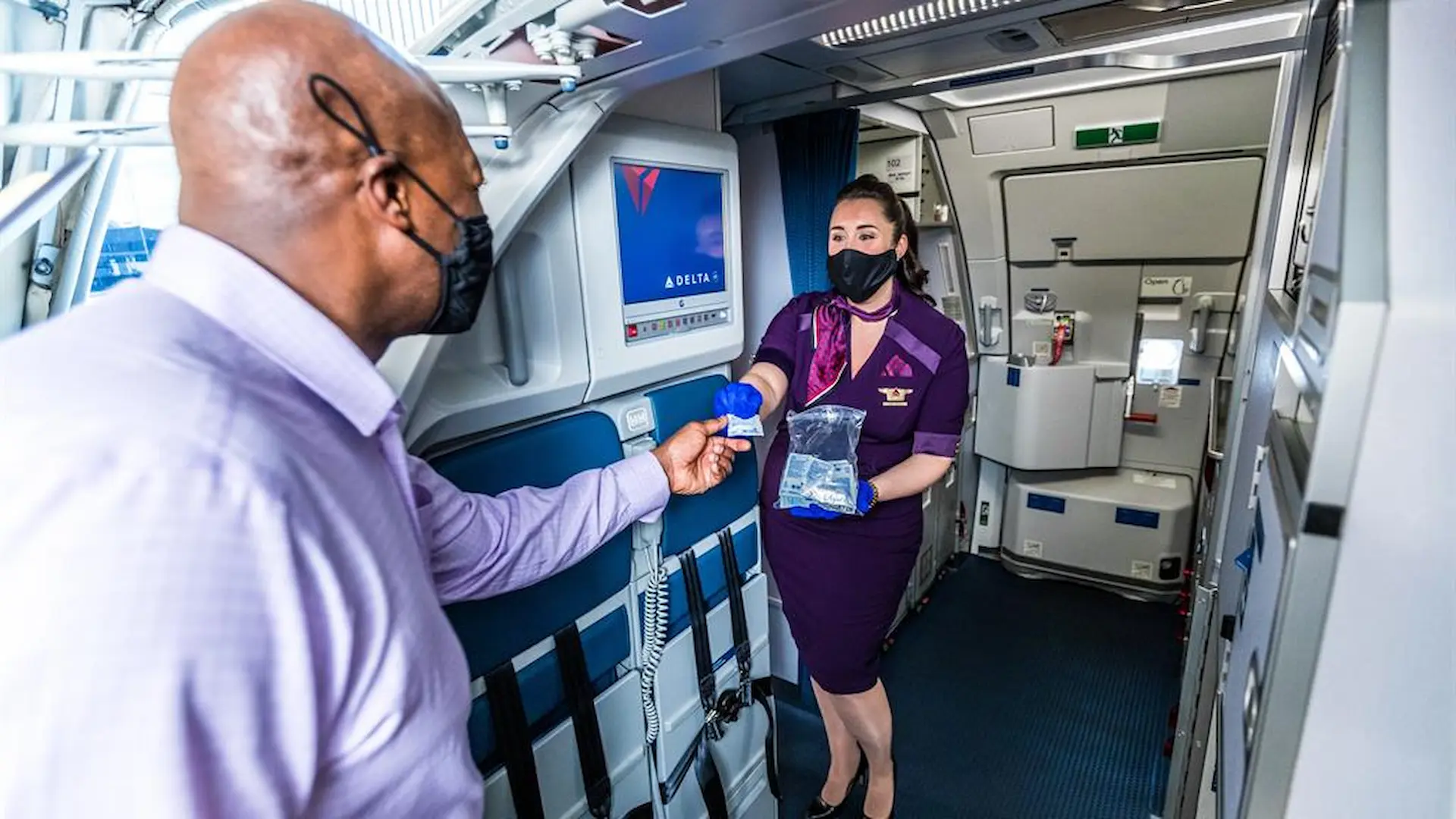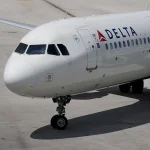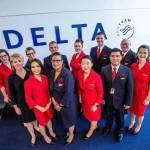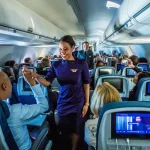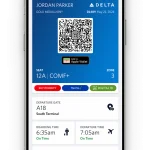The landscape of air travel has evolved significantly since the COVID-19 pandemic first disrupted global aviation. As of 2025, Delta Air Lines continues to prioritize health, safety, and operational consistency across its domestic and international network. While some pandemic-era policies have been retired, many foundational protocols remain in place, reflecting both industry best practices and passenger expectations for cleanliness, hygiene, and trust in air travel.
Delta’s commitment to “health safety by design” is evident across its fleet, airport operations, and service touchpoints. This article provides a detailed, expert-level analysis of what remains, what’s changed, and what travelers should still expect when flying Delta in 2025.
What Health and Safety Protocols Are Still Active at Delta in 2025?
As of mid-2025, Delta Air Lines maintains several key health and safety protocols that were originally introduced during or shortly after the pandemic. These practices have since been standardized into Delta’s operational safety model, not as temporary measures but as permanent features of modern air travel.
Current Active Guidelines Include:
- Electrostatic disinfection of aircraft cabins between flights
- Hospital-grade HEPA filtration systems on all mainline and regional jets
- Frequent cleaning of high-touch areas at airports and lounges
- Optional face mask usage for passengers and crew
- Onboard hand sanitizing stations in Delta One and premium cabins
- UV-C light sanitation for crew headsets and onboard equipment
- Digital boarding pass usage to minimize contact at gates
These measures align with global recommendations from IATA, FAA, and CDC aviation guidance as of 2025.
What Cabin Cleaning Practices Remain Standard?
Delta continues to uphold a rigorous aircraft sanitation schedule.
Cabin Cleaning Overview:
- Electrostatic sprayers used nightly at every hub
- Tray tables, armrests, seat belts, window shades, and lavatories cleaned before every departure
- Use of EPA-registered disinfectants effective against respiratory viruses and bacteria
- Deep cleaning rotations every 7 days for long-haul aircraft
Independent audits confirm Delta maintains one of the highest cleanliness scores among U.S. carriers.
Tip for passengers: You can still request disinfectant wipes during boarding on most Delta flights.
Are HEPA Filters Still in Use on Delta Flights?
Yes. All Delta aircraft, mainline and Delta Connection regional fleets, are equipped with HEPA (High-Efficiency Particulate Air) filtration systems. These filters remove over 99.99% of airborne particles, including viruses, bacteria, and allergens.
Filtration Facts:
- Cabin air is refreshed every 2 to 6 minutes
- Delta uses hospital-grade filters, comparable to those in surgical rooms
- Airflow is top-down, minimizing forward or lateral movement of particles
- Delta’s Airbus A220, A321neo, and A350 fleets feature next-gen filtration integration
These systems remain standard across the aviation industry.
Are Face Masks Still Required When Flying Delta in 2025?
As of 2025, face masks are not required on Delta flights or in Delta-operated terminals. The TSA mask mandate expired in 2022, and no new federal regulation has been introduced since.
Face Mask Policy:
- Optional for all passengers and crew
- Respect encouraged for those who choose to wear masks
- Masks are available upon request at ticket counters and boarding gates
- Certain international destinations may still require masks due to local laws
How Does Delta Maintain Airport Hygiene Standards?
Delta maintains high sanitation standards at airports it controls, especially at major hubs like Atlanta (ATL), New York-JFK (T4), and Salt Lake City (SLC).
Key Hygiene Measures at Terminals:
- Touchless check-in kiosks and digital bag tags
- Regular cleaning of kiosks, seating areas, jet bridges, and restrooms
- Sanitizing dispensers placed every 50–75 feet inside terminals
- Plexiglass barriers still present at some counters and lounges
- Smart restroom systems monitor usage and alert staff for cleaning cycles
Delta collaborates with airport authorities to extend these protocols beyond exclusive-use areas.
Is Social Distance Still Practiced?
No. Delta has retired social distancing requirements in gate areas and on board aircraft. This change occurred in 2022, in alignment with global aviation norms.
However, some design choices remain:
- Wider gate seating layouts at remodeled terminals
- Contactless boarding procedures (scanning vs. handing over passes)
- Encouragement of self-service options for rebooking or upgrades
Delta was one of the last U.S. carriers to stop blocking middle seats in 2021.
What Has Replaced the COVID-era Travel Restrictions?
All U.S. federal travel restrictions related to COVID-19 have been lifted since 2023. However, international destinations may have country-specific requirements, especially in Asia or Oceania.
For International Travelers:
- No COVID test required to re-enter the U.S.
- Vaccination proof not needed for U.S. citizens entering most countries
- Some countries (e.g., Japan, China) may still require health declaration forms
Delta’s booking platform and Fly Delta App provide destination-specific alerts.
Tip: Always check Delta’s “Know Before You Go” hub before an international flight.
What Safety Innovations Has Delta Introduced Since 2020?
Delta has adopted several technology-driven health innovations since 2020, many of which remain active.
Post-2020 Safety Innovations:
- Parallel Reality™ digital boards (personalized boarding info at ATL)
- Facial recognition boarding for international flights at JFK, ATL, DTW
- Biometric bag drop available at select airports
- Delta Sync™ Wi-Fi portal promotes digital-only interaction with crew and services
These systems reduce unnecessary contact and speed up boarding.
How Are Crews Trained in Health Safety Today?
Flight attendants and ground crews undergo annual health and safety protocol training, integrated into FAA-mandated modules.
Topics include:
- Infection control procedures
- Passenger medical emergencies
- Handling biohazard situations
- Cabin air quality management
- Emotional support for nervous passengers
Delta flight attendants also attend periodic “Safety Days” for scenario-based training.
Are In-Flight Services Still Modified for Health Reasons?
Most in-flight services have returned to pre-pandemic levels. However, several changes introduced in 2020–2022 have been retained.
In-Flight Service Adjustments Still in Place:
- Sealed cutlery and packaging for main cabin meals
- Pre-packaged snacks instead of open serving trays
- Digital ordering in Delta One on select aircraft
- Contactless credit card payments for onboard purchases
- Limited printed materials (menus, magazines)
These updates balance convenience and cleanliness.
If you’re planning around medical needs, this guide to airlines that provide inflight oxygen is a practical companion resource.
Are There Any Traveler Responsibilities?
While Delta maintains high safety standards, passengers are expected to observe basic health etiquette.
Recommended Passenger Practices:
- Stay home if symptomatic
- Use hand sanitizer regularly
- Respect fellow travelers’ personal space
- Wear a mask if flying while recovering from respiratory illness
- Follow all local laws when entering foreign countries
Delta encourages all travelers to stay current on vaccinations and health screenings.
In 2025, Delta Air Lines has maintained a strong commitment to health and safety, not out of obligation, but because it has become core to the modern flying experience. From advanced filtration systems to touchless check-ins and professional-grade sanitation, Delta continues to offer a travel experience built on trust, transparency, and long-term consistency.
For passengers, this means peace of mind at every stage of the journey.
If you want safety details in the bigger experience picture, our Delta Airlines review covers what travelers can realistically expect.
FAQs About Delta’s Health & Safety in 2025
Is masking still required on Delta flights?
No, masks are optional for both passengers and crew.
Does Delta still clean aircraft between flights?
Yes. Aircraft are cleaned thoroughly using electrostatic sprayers and EPA-approved disinfectants.
Are HEPA filters still used?
Yes. All Delta aircraft use hospital-grade HEPA filters.
Are meals and drinks back to normal?
Yes, though pre-packaged service remains for hygiene purposes.
What happens if someone is sick on board?
Flight crews are trained to isolate and assist ill passengers using emergency medical protocols.
For a broader safety lens across major carriers, Is United Airlines safe provides context alongside Delta’s health and safety guidance.
See more about United Airlines Review.

